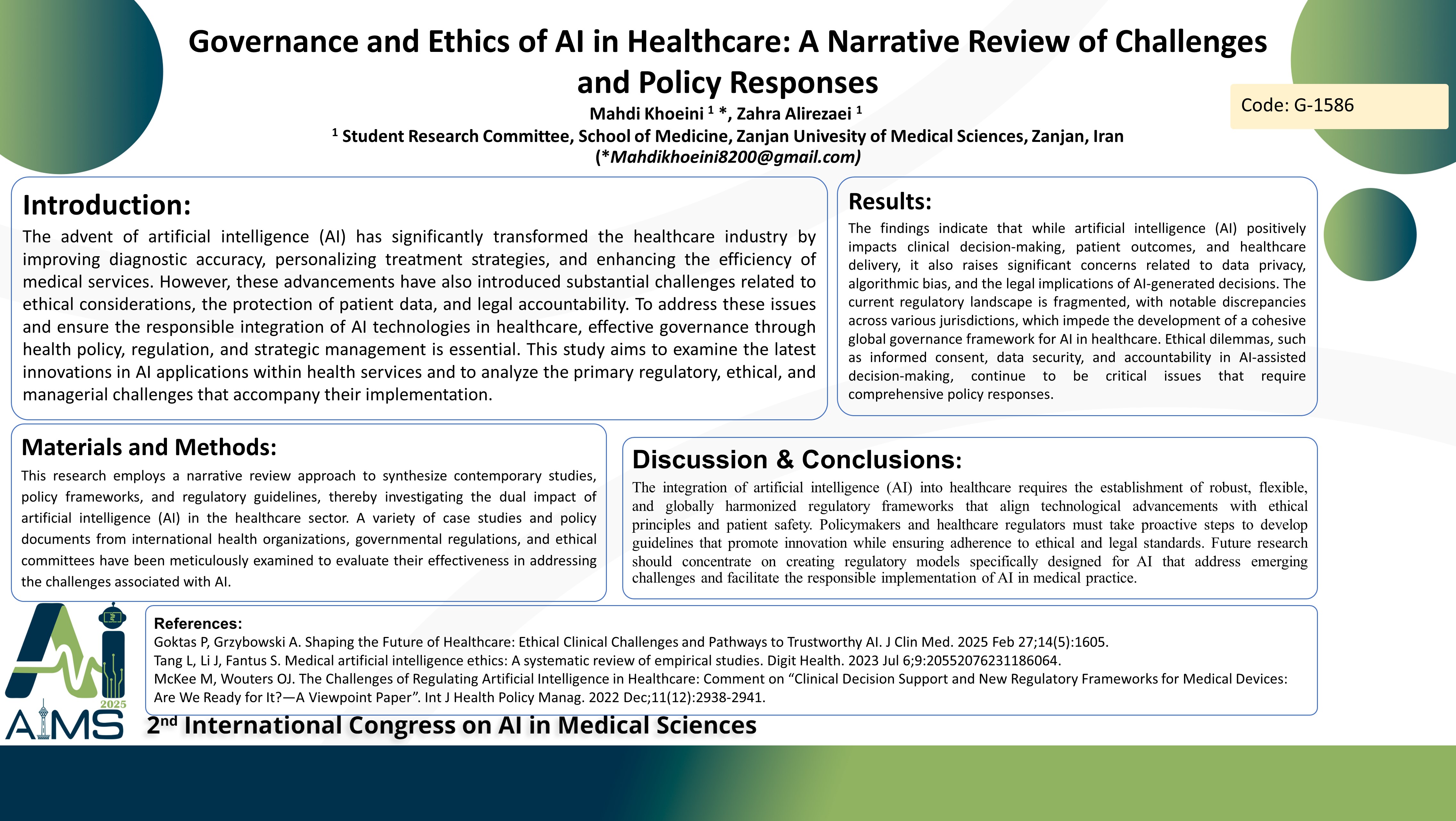Governance and Ethics of AI in Healthcare: A Narrative Review of Challenges and Policy Responses
Code: G-1586
Authors: Mahdi Khoeini *, Zahra Alirezaei ℗
Schedule: Not Scheduled!
Tag: Health Policy, Law & Management in AI
Download: Download Poster
Abstract:
Abstract
Background and aims: The advent of artificial intelligence (AI) has significantly transformed the healthcare industry by improving diagnostic accuracy, personalizing treatment strategies, and enhancing the efficiency of medical services. However, these advancements have also introduced substantial challenges related to ethical considerations, the protection of patient data, and legal accountability. To address these issues and ensure the responsible integration of AI technologies in healthcare, effective governance through health policy, regulation, and strategic management is essential. This study aims to examine the latest innovations in AI applications within health services and to analyze the primary regulatory, ethical, and managerial challenges that accompany their implementation. Method: This research employs a narrative review approach to synthesize contemporary studies, policy frameworks, and regulatory guidelines, thereby investigating the dual impact of artificial intelligence (AI) in the healthcare sector. A variety of case studies and policy documents from international health organizations, governmental regulations, and ethical committees have been meticulously examined to evaluate their effectiveness in addressing the challenges associated with AI. Results: The findings indicate that while artificial intelligence (AI) positively impacts clinical decision-making, patient outcomes, and healthcare delivery, it also raises significant concerns related to data privacy, algorithmic bias, and the legal implications of AI-generated decisions. The current regulatory landscape is fragmented, with notable discrepancies across various jurisdictions, which impede the development of a cohesive global governance framework for AI in healthcare. Ethical dilemmas, such as informed consent, data security, and accountability in AI-assisted decision-making, continue to be critical issues that require comprehensive policy responses. Conclusion: The integration of artificial intelligence (AI) into healthcare requires the establishment of robust, flexible, and globally harmonized regulatory frameworks that align technological advancements with ethical principles and patient safety. Policymakers and healthcare regulators must take proactive steps to develop guidelines that promote innovation while ensuring adherence to ethical and legal standards. Future research should concentrate on creating regulatory models specifically designed for AI that address emerging challenges and facilitate the responsible implementation of AI in medical practice.
Keywords
Artificial-Intelligence, Healthcare-Policy, Ethics, Medical-Data-Security, Regulation, Governance
